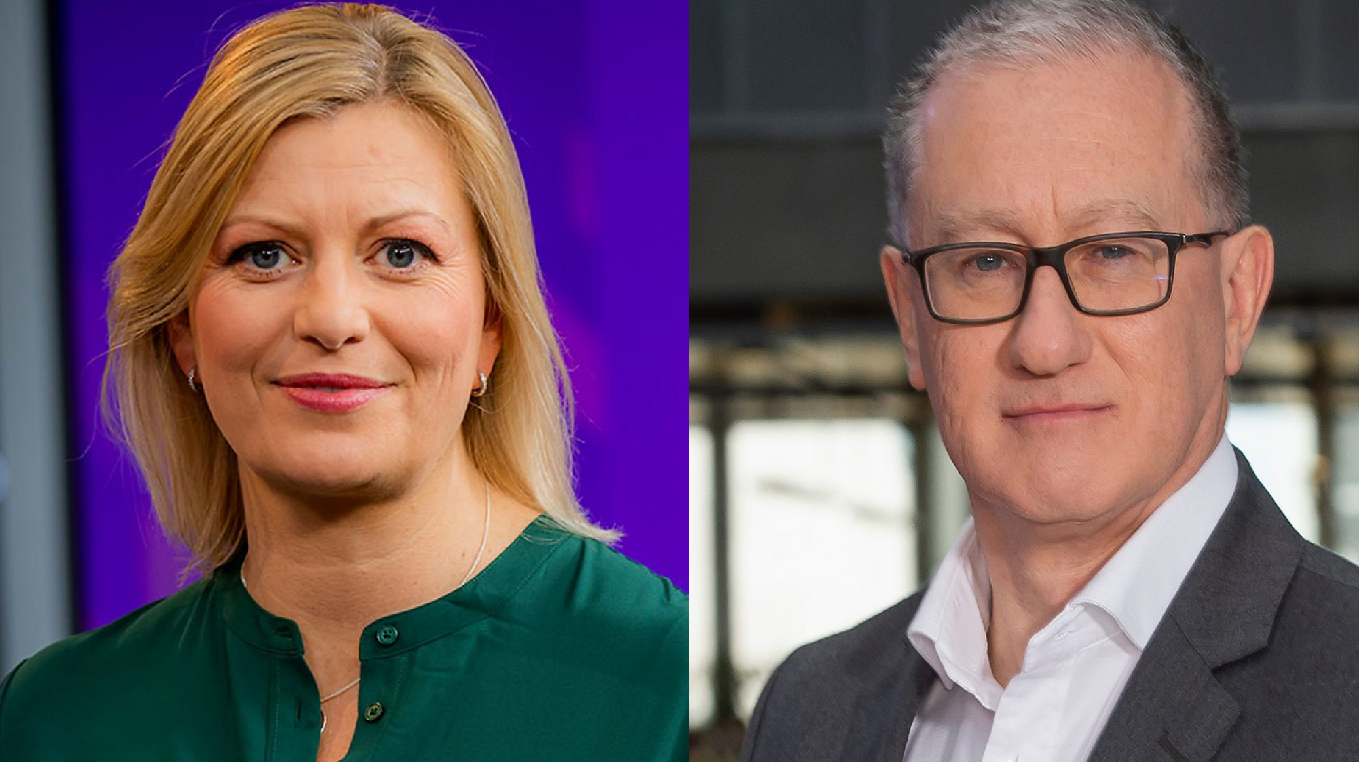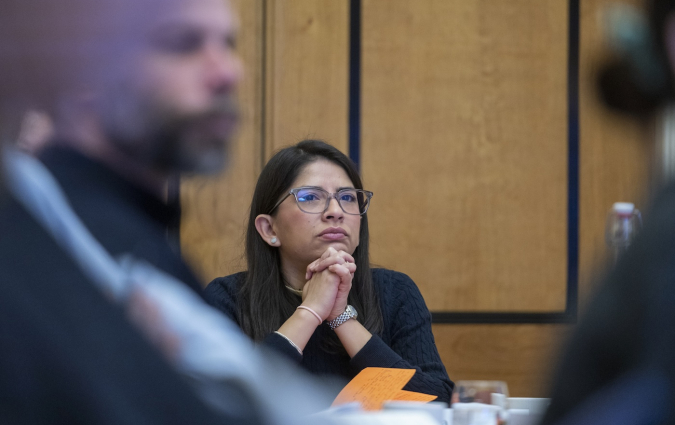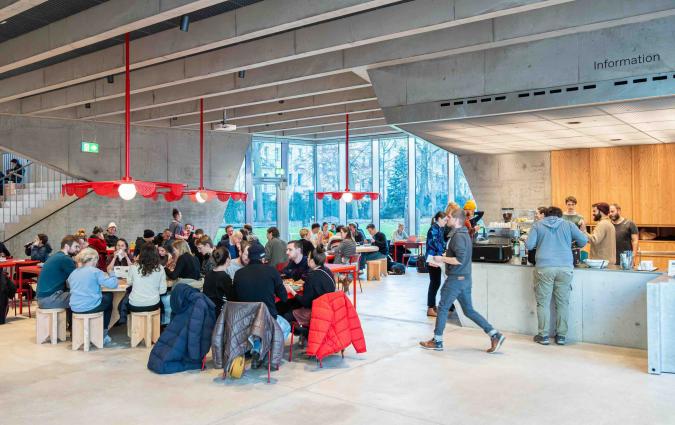What BBC Scotland’s leadership learned from launching and scrapping their flagship programme

Hayley Valentine, Director of BBC Scotland, and Gary Smith, Head of News and Current Affairs.
In 2019, BBC Scotland finally launched its own channel, in a long overdue response to perceptions that the BBC’s UK-wide news coverage didn’t properly serve its Scottish audience. The goal was to fill that gap by offering news and programming made in and for Scotland.
The flagship programme of the new channel was to be The Nine, an hour-long nightly news show. But after five years, the programme struggled to find an audience. At its lowest, an edition of The Nine drew just 1,700 viewers - not strong figures for a national news show in a country of over five million. Its weekend sister programme, The Seven, fared even worse, with one edition reportedly watched by just 200 viewers. In response to these metrics, the BBC decided to scrap the show in 2024.
I spoke with Hayley Valentine, Director of BBC Scotland, and Gary Smith, Head of News and Current Affairs, about what their experience of launching and closing the show has taught them about taking risks, leading through tough changes, and what it takes to shift course in a legacy institution. Here are four of the things they learnt.
1. Take the time to make a closing plan – and to communicate it
One of the biggest challenges in ending a major project is managing the optics of the aftermath.
In the case of The Nine, Valentine and Smith said making sure they had a path forward before announcing the show’s closure helped manage their teams’ reaction to what could otherwise have been a demoralising decision.
When the decision was announced, the leadership had already mapped out a reinvestment strategy, covering five new initiatives: a daily podcast, more investment in digital content, a new TV news programme, strengthened debate programming, and extended editions of Reporting Scotland.
Having this plan for reinvestment not only helped mitigate backlash, but also made it clear that the decision was strategic, not reactionary. It also helped counter perceptions that the decision was a disguised budget cut from London, which can be a sensitive topic for Scottish audiences.
“We could point to the fact that the money was staying in Scotland and would be invested in other journalism,” Valentine said. “That helped when we were explaining the decision to staff and to our audiences.”
2. Be transparent with both your audiences and your team, even when it’s tough
The closure of The Nine posed a particular challenge, as the team needed to keep producing the show while its closure was formally finalised by Ofcom, the UK’s national broadcast regulator. This meant there was a period of almost 10 months between the day when the decision was announced and the day when the programme went off-air. Smith said that maintaining morale in the newsroom in that context required honesty.
“When we announced the show’s closure to our teams and to our audiences, we were very clear and transparent with our narrative: audience habits are changing, and we’ve got to make sure we are producing our content where audiences want to find it,” he said. “Being honest with the team about why we were making this change, how we were going to do it, and exactly what the impact was going to be on jobs - these things were important. People want to feel they're hearing the truth from you about changes to their working lives.”
Smith also highlighted the importance of framing when it came time to communicate the decision to their team. While some were upset by the closure, they emphasied that the team would be working on new projects. “We didn’t say ‘The show’s been rubbish and we’re closing it.’ We were clear with our teams that we were very happy with the quality of the programme through the years, but the audience data was telling us we had to do new things,” he said.
When tough decisions are well-considered and communicated clearly, Smith said, they become easier to manage. And delaying them can cause more harm in the long run. “As a leader," he said, "you do have to make some tough decisions, but if you manage them properly, they're not so bad. In the end, if you're confident that your decisions are right, and that you're making these changes for the right reasons, then you can feel confident in your narrative.”
3. Normalise change
Valentine also reflected on how her experience with The Nine has motivated her to create a culture where change is not feared, but expected. “Historically, the psychology [at the BBC] is that things are forever, " she said. "Therefore, an announcement [that we are closing a programme] becomes a bigger deal than if we said from the onset: ‘We'll try it for a year and see how it goes. This is not necessarily a natural skill set in the BBC, but I think we need to get better at it.”
In other words, setting the expectation from the outset that projects will always evolve helps normalise change - and hopefully reduces resistance when that change inevitably comes.
“You can't just think that once you've set something up nicely, that's it, you’ll just carry on with it forever - and particularly not in the media, where audience habits change so quickly, ” said Smith.
That mindset shift, they said, is important in today’s media environment. “The current pace of changes in audience habits and in the industry is unlike anything else I've known,” said Valentine. “In this climate, I think we should be more specific with both our audiences and our staff about the fact that things will probably have a shelf life.”
4. Recognise the value in a project beyond its immediate outcome
While The Nine ultimately didn’t land with audiences, Valentine and Smith both argue that it still had a lasting impact, particularly within the BBC Scotland newsroom itself.
The programme gave the team an opportunity to experiment with new formats and to hire a broader and more diverse group of journalists, many of whom have gone on to work on other programmes and teams at the BBC.
“Even though the programme doesn't exist anymore, it has had influence on the broader newsroom,” Valentine said. “For instance, we brought in a huge number of new journalists from diverse backgrounds when we launched the show, which has had a real influence on the sort of storytelling we do. Not every single individual we hired for The Nine still works here - but actually a lot of them do!”
The Nine also allowed the newsroom to pilot a more informal and conversational presentation style, taking cues from sports news programmes and moving away from the formality typical of traditional nightly news programmes. Valentine says elements of this approach, including the more relaxed dress and tone of the presenters, and the more casual set design, have since been incorporated into other BBC Scotland shows.
More broadly, the show has contributed to some fundamental shifts in editorial priorities across the organisation as a whole, which has had value beyond the initial programme.
“One of my priorities when we launched The Nine was that we would focus on doing original journalism,” Valentine said. “Staff were expected to bring in their own stories, and we’d do more long-form journalism. I tried to bring the sort of spirit of that to the daily news operation, and I think that’s outlasted the programme as well."
In every email we send you'll find original reporting, evidence-based insights, online seminars and readings curated from 100s of sources - all in 5 minutes.
- Twice a week
- More than 20,000 people receive it
- Unsubscribe any time
signup block
In every email we send you'll find original reporting, evidence-based insights, online seminars and readings curated from 100s of sources - all in 5 minutes.
- Twice a week
- More than 20,000 people receive it
- Unsubscribe any time







